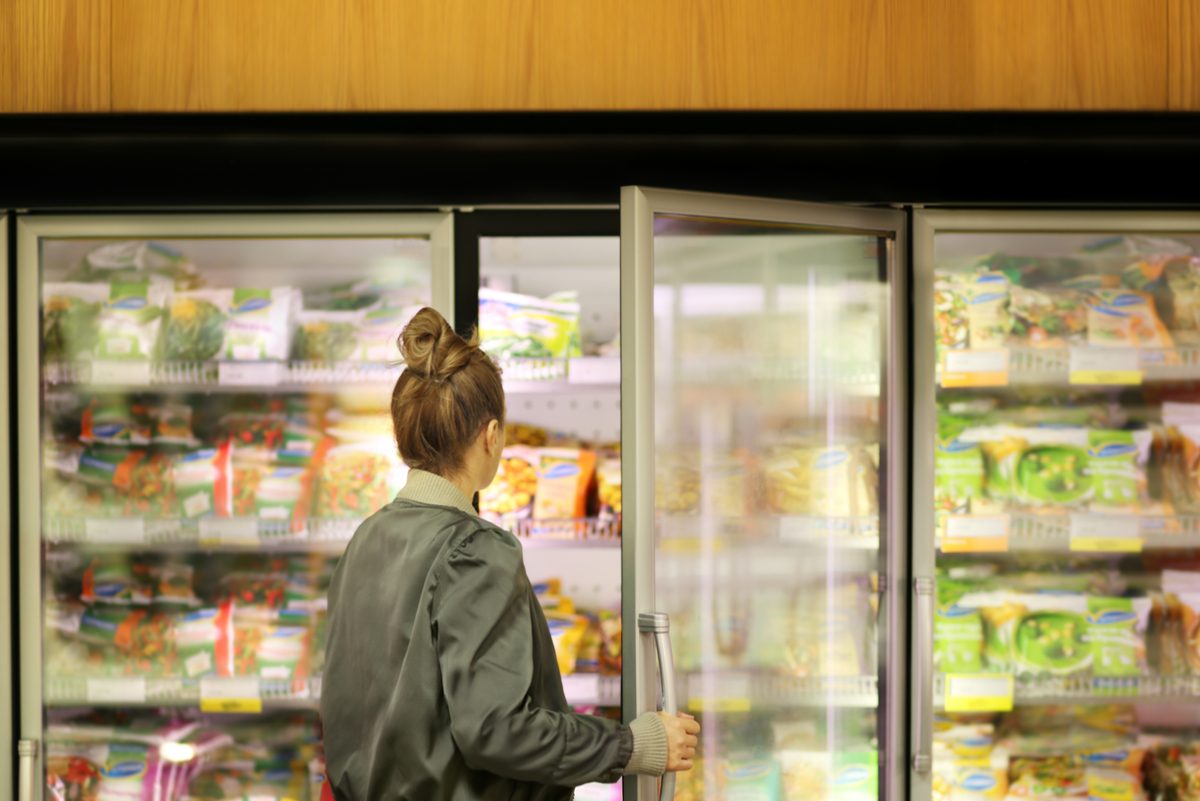The #1 Grocery Item To Never Buy Pre-Made, According to Experts

In today’s fast-paced world, cooking homemade meals can fall through the cracks. This is a problem that grocery stores aim to solve with pre-made meals and other grab-and-go foods—options that everyday consumers rely on in a pinch.
We’ve all defaulted to a pre-made deli sandwich during a quick 20-minute lunch break, or picked up a last-minute pre-cut fruit platter on the way to a party. And there’s nothing wrong with that…is there? If you ask a chef or a food expert, the answer will likely be yes, and that there are actually multiple things which can be wrong with this seemingly harmless lifestyle choice.
RELATED: 7 Grocery Items to Never Buy Frozen, According to Chefs
While these pre-made products seem like a convenient fix—and a presumably healthier alternative to a trip through the drive-thru—most of the time, they aren’t all they’re cracked up to be. For starters, when you buy ready-to-eat foods you are relinquishing control over what ingredients are used as well as their proportions–usually resulting in a less nutritious and less tasty dish.
It’s for these reasons that Chef Serge Krikorian, owner of the Arkansas full-service catering company Vibrant Occasions, swears off pre-made foods altogether. “I personally do not buy any pre-made food items at the grocery store,” he admits. “While I understand the convenience of pre-made food items and the fact that many times they are a better option than fast food, I think that eating should be an enjoyable experience and for me, in order to be enjoyable, I have to like the taste of what I am eating.”
As a seasoned chef, it’s no surprise that Krikorian views food preparation and cooking as a labor of love. And when he is unable to dictate factors such as salt level, fat content, or the flavor profile, foods typically do not meet his standards.
Other food experts we spoke to affirm that pre-made foods have their fair share of faults. A common concern with these types of foods is that they are typically made with cheap and not-so-fresh ingredients. Chef, grilling expert, and editor of Grill Smoke Love Joonas Jokiniemi says that stores do this in order to reduce waste and make use of foods that may otherwise spoil. With that in mind, he always passes up both pre-mixed salads and sushi at his local grocery store.
“Salads become soggy very quickly and they don’t taste fresh, which is the whole point of having a salad,” Jokiniemi says. “Sushi is raw fish, and the freshness is one of the key factors in its quality. You simply can’t let sushi or sashimi stand on a counter for more than a few minutes without noticing it in the taste.” You likely won’t find pre-cut fruits and vegetables in the chef’s cart either. He says they tend to dry out and lose their freshness much quicker than whole vegetables and fruits.
Cost is another notable downside. Pre-made products often incur insane markups and can end up costing just as much as a restaurant lunch, according to Jokiniemi. But the important difference? Restaurant ingredients are typically fresh and you can enjoy them in a nice atmosphere with service.
Hector Ruiz agrees on the issue of cost and, similar to Jokiniemi, was quick to call out pre-made, pre-mixed, or pre-packaged vegetables–including salads–as bad investments. In his experience with outdoor cooking as president and founder of BBQ Grill Academy—an online resource which teaches people about a wide range of cooking methods–these cooking hacks are not worth the added cost and typically don’t even offer that much in the way of time savings.
“It’s understandable for some consumers to want to grab a salad kit and whip up a salad bowl in a matter of minutes, but if you do the numbers, that extra five minutes costs you hundreds more per year,” he says. “Not to mention that you could be eating fresher salads if you bought some fresh vegetables from the store.”
Ruiz also brings up preservatives. Many pre-made foods—even “healthy” salads—are crawling with preservatives or other artificial compounds in order to extend their shelf life and give them the appearance of freshness for longer. If you’re looking for a salad sans a side of chemicals, Ruiz recommends chopping up your veggies at home.
Nutritionist Lisa Young also isn’t a fan of pre-made, store-bought salads–but not the lettuce-based varieties. She advises against indulging in mayo-based salads from the deli counter–such as tuna salad, egg salad, salmon salad, and chicken salad–for the fact that they contain “far too much mayo.”
“There are so many healthier–and tastier–ways to make these dishes,” she says. “Not only can you save lots of calories by cutting out excess mayo and oil, but you can also substitute healthier fats like olive or avocado oil, or add more nutrient dense mix-ins like hummus or tahini instead.”
Dietitian Sandy Wolner, head of culinary education for Pampered Chef’s Test Kitchen, rattles off a few ready-to-eat items that she avoids like the plague, including pre-made guacamole and mashed potatoes. She says they’re easy enough to make at home, where you can use top-notch ingredients.
However, she also recognizes the obvious convenience these foods offer and gives some advice on which pre-made products, in her opinion, are worth the added cost.
“Pre-made foods can be extremely helpful in getting meals on the table when you’re short on time,” she says. “I would recommend spending on items that are the most time or labor-intensive to do at home, such as a rotisserie chicken, which can be used for more than one meal. But make simpler dishes yourself.”








